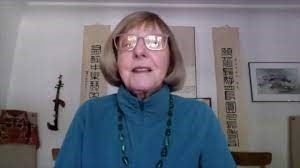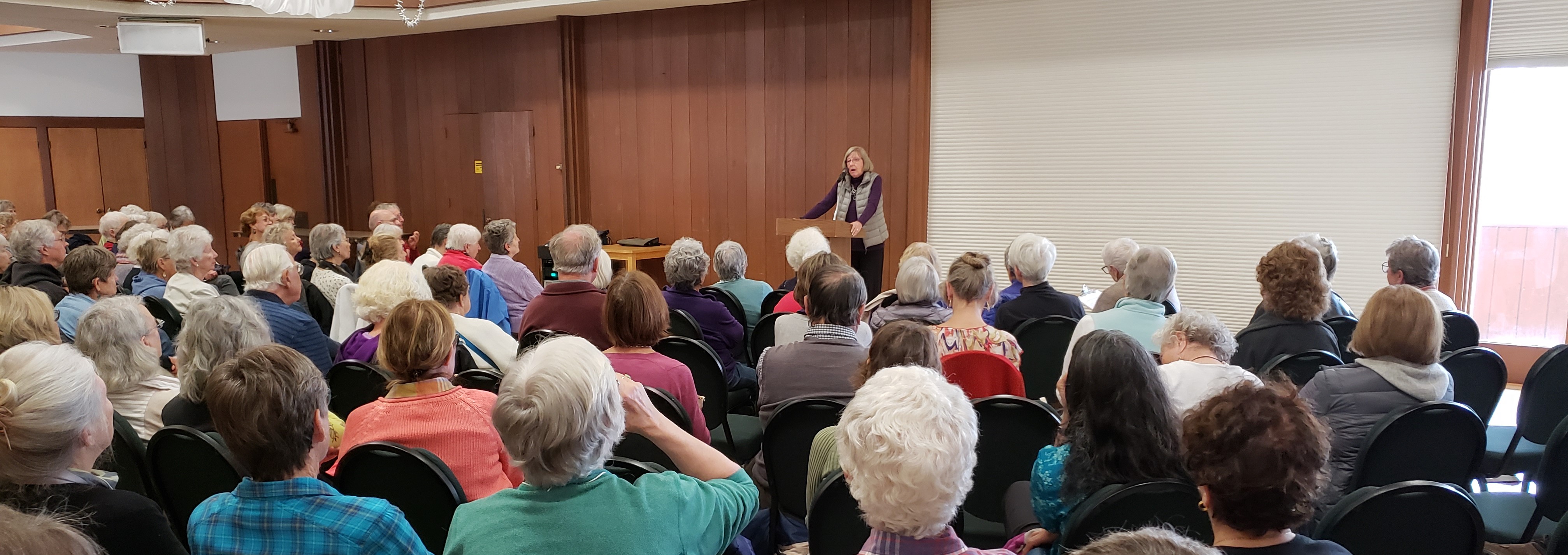Academic Year 2024 Courses
Our courses provide opportunities for our members to delve more deeply into fascinating subjects, hear from outstanding teachers, and have fun as well: no exams, no grades, but ample opportunities to participate in discussions.
You must be an OLLI member to sign up for Courses!
→ Courses are limited to 2024 members of Osher Lifelong Learning Institute at UCSC. If you wish to join, go to our home page and use the section titled Join OLLI at UCSC or Renew Your Membership. Please read the entire description of each class, as some have different enrollment procedures.
Online Registration is available. Sign into your OLLI account and go to the "Course" button and select the courses and follow the instructions. Link to sign into your OLLI account click here!
For those that would like to send in your registration for any of the courses you can download a PDF Here! For a Zoom link please include your email address on the form. Please note that using the USPS to mail in registration will take 2 to 3 weeks to get recorded so plan accordingly.
All courses have a $25.00 fee for each course. Please include your check or credit card information as payment for the course or courses.
2501 International Affairs 20242502 The New World of Genetics and DNA
2503 The Putin Regime and Ukraine
2504 Race and the European Fairy Tale
2505 From Ancient Greeks to Isaac Newton
2506 The Supreme Court and American Life
2507 The Art of Photography
2401 International Affairs 2024
When: Every other Monday on Youtube. Members receive notice of the class. There is no charge.
Instructor: Prof. Emerita Ronnie Gruhn
We are again fortunate to have Ronnie Gruhn, Professor Emerita of Politics at UCSC, as one of our teachers. She has a passionate and undiminished interest in reading, writing, and talking about world affairs. Her courses offer powerful insights into what is happening today. Ronnie has been very generous in sharing her knowledge with OLLI members, and her courses have been exceedingly well attended. Ronnie is continuing her series of YouTube commentaries on international affairs every other Monday. Watch your inbox for an email from OLLI with a link to the commentary. This is a special privilege for all OLLI members.
Ronnie is very interested in answering any questions you may have about material she covers in her classes and other aspects of International Affairs. E-mail your questions to her at Ronnie@UCSC.edu.

2502 The New World of Genetics and DNA
When: Thursdays 10:30: Sep 12, 19, 26, Oct 03
Where: London Nelson CC
Instructor: Prof. Emeritus Barry Bowman, Molecular and Cell Biology
In the last 20 years new technology has led to an explosion of information about our genes and DNA. This course provides an overview of some of the most exciting developments. It is directed at a general audience and no previous training in biology is required. We start with an explanation of the structure and function of DNA and genes. In humans, for example, we now know that less than 5% of our DNA actually encodes genes. How do we know where the genes are? And what is the function of the other 95%? Other intriguing questions include the following:
- How are genes turned on and off?
- How do mutations in genes occur and what are the consequences?
- What are the new approaches in medicine that change genes in humans?
- How do companies sequence your DNA and how do you interpret the results?
- What is epigenetics, forensic DNA, environmental DNA, ancient DNA, junk DNA?
For many years Dr Bowman taught Introductory Biology as well as Biochemistry at UCSC. A past president of OLLI, he has also taught OLLI courses since 2010.
2503 The Putin Regime and Ukraine
When: Fridays 10:30: Oct 04, 11
Where: London Nelson CC
Instructor: Peter Kenez, Professor Emeritus, History
The first of these two lectures discusses the nature of the political, social, and intellectual order of the Putin regime from 2000 until now. In the second lecture, the history of Ukraine during this time period will be presented, including the history of the current war and how the world looks from Moscow.
Dr Kenez is a historian specializing in Russian and Eastern European history and politics.
2504 Race and the European Fairy Tale
When: Mondays 10:30: Oct 07, 14, 21, 28
Where: London Nelson CC
Instructor: Kim Lau, Professor of Literature and Provost of Colleges 9/Lewis
This class explores the centrality of race in the development of the European fairy tale from the early seventeenth century through the early twentieth century. We focus on four canonical fairy tale collections, contextualizing the tales in relation to ideas about race particular to each of their historical and cultural moments, while also tracing the continuation of key narrative themes across the collections in order to understand both how racial thinking shaped the European fairy tale and how the European fairy shaped western racialization.
Dr Lau served as Provost of Oakes College 2008-2014, chaired the UCSC Academic Senate, and was an Associate Dean of Faculty Affairs in the Humanities Division. Her research and teaching interests focus on fairy tales, race, and feminism, including women’s health activism.
2505 From Ancient Greeks to Isaac Newton
When: Fridays 10:30: Oct 18, 25, Nov 01, 08
Where: London Nelson CC
Instructor: Jeff Fraser MD and retired neurologist
The ancient Greeks were not the first astronomers but their contributions to the field were groundbreaking, owing largely to their clever use of geometry and reasoning. Their efforts culminated in Ptolemy’s geocentric model, which proved extraordinarily accurate and would not be supplanted for more than 1000 years. With Copernicus, Brahe, and Kepler, one sees how the study of astronomy engendered development of the scientific method. With Galileo and Newton, one sees how advances in mathematics and physics brought about the triumphant scientific revolution. This class traces these developments and enables students to appreciate how a combination of high-school-level mathematics, careful observation, and clever reasoning led the ancient Greeks and the giants of the scientific revolution to their astonishing achievements.
Dr Fraser received his MD from UCLA and his neurology residency at UCSF. He was Department Chair of Neurology at Santa Clara Valley Medical Center, a teaching hospital for Stanford.
2506 The Supreme Court and American Life
When: Thursdays 10:30: Oct 24, 31, Nov 07, 14
Where: London Nelson CC
Instructor: Arthur Rolston, Attorney and History Professor,
The 2023-2024 term of the Supreme Court produced a number of opinions shaping – or misshaping – our political, social, and economic institutions. This class examines cases decided this past June and places them in legal and historical perspective. The four classes will be as follows:
- Oct 24: Section 3 of the 14th amendment and presidential immunity: Trump v. Anderson and Trump v. United States
- Oct 31: Gerrymandering – politics trumps race: Alexander v South Carolina
- Nov 07: Homelessness: City of Grants Pass v Johnson
- Nov 14: Free Speech and Social Media – free speech applies, we think: Murthy v Missouri (decided); Moody v Net Choice and Paxton v Net Choice (remanded).
Dr Rolston earned a JD (Berkeley) and PhD in history (UCLA) and, as a UCLA adjunct lecturer 2007-2016, taught 19th-century American and US constitutional history.
When: Tuesdays 10:30: Nov 12, 19, 26, Dec 3
Where: London Nelson CC
Instructor: Various Photographers
This course will be presented by eight excellent photographers from the Santa Cruz area. There will be four sessions, each with two photographers. The aim of the course is seeing how different photographers choose their subjects and to hear about the photographic techniques they use. The emphasis on the course will be more on art appreciation than on learning photographic methods. You do not have to be an avid photographer yourself to benefit from this course. The names of the presenters will be provided in the next OLLI newsletter.
Contact Barry Bowman for further information.

